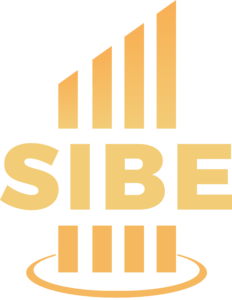Want to know more about how you can register your business in Ghana? Can businesses operate smoothly without being registered? Well, the business laws of Ghana mandate that all businesses should be registered with the Registrar General’s Department, so it will be quite challenging to operate smoothly without being registered.
Registering your business with the Registrar General’s Department (RGD) and obtaining a Tax Identification Number (TIN) from the Ghana Revenue Authority (GRA) is a critical step in ensuring your business is recognized and operates legally.
The formalization of your business comes with numerous advantages:
a. Legal Recognition
Business registration provides your venture with legal status, allowing it to enter into contracts and agreements and providing a level of trust and credibility in the marketplace.
b. Access to Loans and Investments
Financial institutions and investors tend to favour registered businesses as they appear more legitimate and accountable. Registration increases your chances of securing loans or attracting investors. Without the proper business registrations and permits, financial institutions ignore your application for loans and financial support.
c. Government Contracts
Government contracts, which can be lucrative opportunities, require businesses to be registered. Therefore, registering your business is essential if you’re interested in bidding for government projects.
Preparing for Registration
Before proceeding to register your business in Ghana with the Registrar General’s Department, you must first decide on which entity or business structure you would want your business to be registered under, choose a business name and get the necessary documents ready to make the process seamless.
Choosing a Business Structure
There are several business entities that the laws of Ghana permit entrepreneurs to form and these entities are regulated by certain Acts of the Constitution, including the Companies Act 2019, Act 992, Registration of Business Name Act, 2012 (Act 837), Incorporated Private Partnership Act (Act 152) and the Public Private Partnership 202, Act (Act 1030). Selecting the right business structure is a crucial decision and largely depends on your business model and goals.
Sole Proprietorship
This structure is perfect for single entrepreneurs. It’s cost-effective and relatively straightforward to set up. For example, if you plan to start a small online retail store, a sole proprietorship might be a suitable choice.
Partnership
If you plan to run the business with one or more partners, a partnership structure is more suitable. Each partner shares in the profits and liabilities. This structure is often favoured by professional service firms, like law or accounting practices.
Limited Liability Company (LLC)
The LLC is one of the most common business structures in Ghana. It offers limited liability to its owners, protecting their personal assets from business liabilities. If you’re planning to open a restaurant, an LLC might be the right choice.
External Company
If your company is incorporated outside Ghana but intends to carry out business activities within the country, you will need to register as an external company. This structure allows foreign businesses to operate in Ghana and is subject to specific regulations and taxation.
Unlimited Liability Company
In an unlimited liability company, the owners have unlimited personal liability for the company’s debts and obligations. This structure is less common due to the high level of personal risk involved and is typically used for specific purposes, such as certain types of insurance companies.
Company Limited by Guarantee
This structure is typically chosen by non-profit organizations, charities, and associations. Instead of share capital, these companies have members who guarantee to contribute a nominal amount (usually a token amount) in the event the company is wound up. The structure is well-suited for entities that exist for charitable or non-profit purposes.

Selecting a Business Name
Choosing the right business name is a fundamental aspect of your business identity that should be approached with care. Some customers decide to do business with you just because of your business name and this shows how names can have effects on your business.
Select a business name that ensures uniqueness and avoids confusion with other entities. It should be simple to pronounce and give a brief description of what your business is about.
Once you’ve decided, search for name availability. You can utilize the RGD’s online portal to verify if your chosen business name is available. Your selected name must be unique and not infringe on existing trademarks or businesses in Ghana. For example, if you plan to start a tech company called “GhanaTech Innovations,” ensure that no other business is already operating under a similar name.
Documentation and Requirements
Here are specific documents you’ll need to compile:
Personal Information
- Personal Identification-Provide a copy of your national ID or passport as a form of personal identification.
- Business Plan: Your business plan should detail your business goals, structure, products or services, and financial projections. It’s essentially your roadmap to success, and it demonstrates your commitment to your business idea. Having a business plan helps you determine the type of business entity you want to establish and helps you navigate the registration process with ease.
- Proof of Address: You’ll need to provide proof of the physical location of your business. This could be in the form of a lease agreement, a utility bill in your business’s name, or a land title deed, depending on the circumstances.
Tax Identification Number (TIN)
If you don’t already possess a TIN, it’s crucial to apply for one with the GRA. A TIN is a unique identifier for tax purposes and is a mandatory requirement for business registration. Make sure to complete the TIN registration process, as it will also be necessary for future tax compliance and reporting.
The Business Registration Process
To provide a concrete example, let’s walk through the steps involved in registering a Limited Liability Company (LLC) in Ghana:
Step 1: Reserve Your Business Name
Begin the process by visiting the Registrar General’s Department’s online portal to check the availability of your desired business name. Select a name that accurately represents your business and is not already registered by another entity.
To reserve the name, you’ll need to pay a fee of GHC 60. This fee secures your chosen business name and prevents others from using it. The name can be reserved for a period of 4 months.
Act 992 of the Companies Act 2019, Section 22(1) states that:
An application for reservation of the name of a company should be sent or delivered to the Registrar General. The Registrar may, after receipt of the application and on payment of the prescribed fee, reserve a name pending registration of a company or a change of name by a company. A name can be reserved for two months after payment. At the expiration of that date, you can further reserve it for another two months after you cannot apply for a new reservation of that name.
Step 2: Complete the Business Registration Form
Download Form 3 from the Registrar General’s Department’s official website. This form is your official application for business registration. It collects crucial details about your business, including the names of shareholders and directors and specifics about your business activities. Ensure that you complete the form thoroughly and accurately.
Step 3: Pay the Registration Fee
For an LLC, the registration fee is GHS 230. This fee can be paid at their in-house bank or through mobile money, making the process accessible and convenient. Be sure to obtain and keep a receipt of this payment for your records. Also, you will need to pay the filing fee of GHS 180 and 1% stamp duty on the stated capital.
Step 4: Submitting Your Application
After completing all the necessary documentation and payment, you should submit the filled Form 3 and the payment receipt to the Registrar General’s Department. The processing time for registration can vary depending on several factors, but on average, it takes a few weeks. It’s advisable to maintain regular contact with the RGD to stay informed about the status of your registration.
Post-Registration Obligations
After registering your business with the Registrar General, there are still some mandatory steps you must take to start your operations and ensure you are legally compliant.
a. Business Licences and Permits
Depending on the nature of your business activities, you may require additional licences or permits from relevant authorities. It’s crucial to identify and obtain any additional permits specific to your industry. For example, if you plan to open a restaurant, you’ll need health and sanitation permits in addition to your business registration.
b. Compliance with Tax Regulations
After your business is registered, it’s essential to meet your tax obligations. This includes filing annual returns and paying corporate taxes. Adhering to tax regulations ensures that your business operates legally and avoids any legal complications down the line.
c. Register for Social Security and National Insurance
Every employer in Ghana is required by law to make SNNIT contributions on behalf of their employees. The employer must register with the Social Security and National Insurance Trust. An application for a Social Security number is a requirement for every salaried worker in Ghana.

Common challenges when registering your business and how to overcome them
- Delays can occur during the registration process due to various factors. To prevent unnecessary setbacks, it’s crucial to follow the process diligently, compile all necessary documents, and ensure your application is accurate and complete.
- If your chosen business name is rejected or conflicts with existing trademarks or businesses, it’s necessary to review the Registrar General’s Department’s guidelines and select a new name that complies. Careful research and adherence to naming guidelines can help you avoid these issues.
- To avoid registration setbacks, it’s essential to ensure you have all the required documents, including a valid personal ID, a comprehensive business plan, and proof of the business address. Being prepared and organized is key to a smooth registration process.
Conclusion- How to register your business in Ghana
Starting a business in Ghana is an exciting and promising endeavour, but it also comes with responsibilities and challenges. Ensuring your business is registered and compliant with the country’s legal framework is essential for smooth business operations and your long-term success.
FAQs
Can you register your business in Ghana as a foreign national?
Yes, foreign nationals can register a business in Ghana. The Registrar General’s Department (RGD) welcomes foreign investment, and the process is generally the same for both Ghanaian and foreign entrepreneurs. However, some business activities may require specific permits or approvals from relevant authorities, so it’s essential to consult with the RGD and other regulatory bodies to ensure compliance.
How long does it take to register your business in Ghana?
The processing time for business registration in Ghana varies depending on several factors, including the complexity of your business structure, the completeness of your documentation, and the current workload of the Registrar General’s Department. On average, it takes a few weeks to complete the process, but it’s advisable to maintain regular contact with the RGD to track the status of your registration.
What is the cost to register your business in Ghana?
The cost of registering a business in Ghana depends on the type of business structure you choose.
| Sole Proprietorship | Partnership | LLC | Unlimited Liability Company | External Company | Company Limited by Guarantee |
| GHC 60 | GHC 160 | GHC 230 | GHC 230 | $1200 | GHC 270 |
Can you change the name of your registered business after registration?
Yes, it is possible to change the name of your registered business in Ghana, but the process involves specific requirements and an application to the Registrar General’s Department. The department will assess the proposed name change for compliance with naming guidelines and ensure that it doesn’t infringe on existing trademarks or businesses.
Do foreign companies and local companies have the same minimum equity requirement for the registration process?
No. Companies that are wholly or partially owned by foreigners are required to have these minimum equity requirements:
- Businesses in the service industry with 100% foreign ownership – US$500,000
- A joint venture between a foreigner and Ghanaian in the service industry – US$200,000
- Trading enterprise (whether jointly owned or 100% foreign owned) – US$1,000,000
Read more on how to start a business in Ghana as a foreigner.
Need help to start? Request a call!





